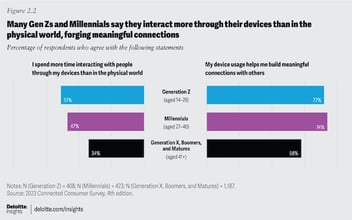Busting the Myth about Age and Mobile Patient Engagement
For the last 10 years or so, I have been writing and speaking about patient engagement strategy and technology. I’ve managed several patient surveys over that time. Most recently, Gozio did a survey of about 700 patients to look at digital patient engagement trends. In our report on the survey, we focused primarily on the challenges patients face and what they’d like to see improved. We called out a few points around age, but didn’t spend much time on it. In this blog post, we are going to dig into the results based on age to help bust the myths around older Americans and their use of technology.
The main thing that the survey shows is that across generations there is a strong desire among patients for a single healthcare platform to manage their healthcare needs, with five out of 10 preferring a single mobile app for this. Looking specifically at Baby Boomers, 85% say a single platform is important, although they are divided around their preference for a mobile app versus a desktop/laptop solution, with 30% saying that they strongly prefer a mobile healthcare solution.
While the data show that Baby Boomers use fewer digital tools than other generations to manage their healthcare, there is no indication that there is a lack of interest in digital health technology.
- 77% would view their lab results and 71% would refill a prescription with a mobile app.
- 52% of Boomers say it is very or extremely important to them to manage their healthcare in one platform.
- 40% used their mobile device for their last digital healthcare service
- 64% would like to be able to send a message to their provider on mobile
Overall, 60% of Baby Boomers say that they would use a mobile app to manage all or some portions of their healthcare.
When it comes to the potential barriers to mobile app usage, Baby Boomers don’t seem to have feelings or concerns that are much different than younger generations. Their top concerns are privacy and user-friendliness, followed by the accuracy of health information. They are least concerned with feature integrations and lack of human interaction. This last item is of particular note. We often hear from health system leaders that older generations feel strongly about speaking with a person, but the survey showed that over 50% don’t feel that way.
Baby Boomers made up 33% of the survey respondents so the sample size is significant. This survey isn’t the only source showing that this older generation isn’t afraid of technology. Other surveys have shown that Baby Boomers’ use of smartphone, texting and the internet have all been on a meteoric rise in the last decade.
It is important to set assumptions aside and consider the data before making decisions about your digital strategy based on the demographics of your patient population. Learn more about the trends in digital patient engagement in the full report, Charting a Path to Optimizing Digital Patient Engagement.


